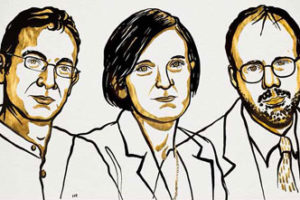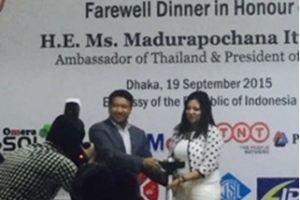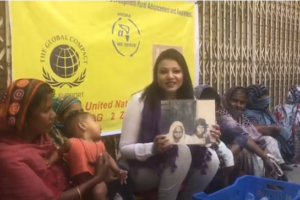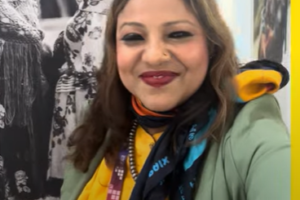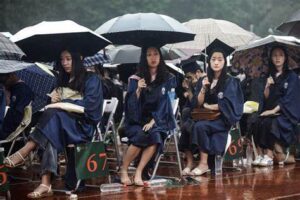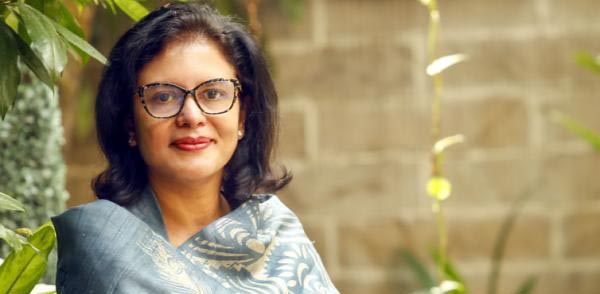The spectacle of Aung San Suu Kyi, a once-persecuted Nobel peace laureate now defending her country against allegations of genocide over its treatment of the Rohingya minority, has been one of bewildering irony.
In the years after she was released from house arrest in 2010, princes, presidents and prime ministers welcomed Aung San Suu Kyi with open arms into their own opulent homes.
The feel-good factor of rubbing shoulders with someone who had dedicated much of her adult life to the pursuit of democracy was irresistible.
Then, the grandeur of the Peace Palace in The Hague – a marble-floored monument to global harmony – would have been comfortable surroundings for Myanmar’s Nobel Peace Prize winner. A native habitat, even.
But not now. There was no red carpet, welcoming committee or brass band.
Instead the light pouring through the stained glass of the Great Hall of Justice illuminated an often haunted-looking figure who had chosen to come and listen to descriptions of some of the most unimaginably gruesome acts. Acts said to have been committed in her country. On her watch.
After two years on trial in the court of international public opinion, Aung San Suu Kyi was now trying to win over the 17 judges at the International Court of Justice (ICJ) – as she defended the same Myanmar military which had taken away her freedom for 15 years.
It was something she – and the rest of the world – surely never imagined would happen.
The cognitive dissonance of a faded beacon of universal human rights arguing against the horrific testimony of some of the 740,000 Rohingya Muslim refugees who had her fled her country pulsed through The Hague this week.
I realised that she was taking her seat in court 28 years to the day after she had accepted her Nobel prize, in absentia. It was a quirk of history that defined the slow-motion transformation of Aung San Suu Kyi’s global standing.
I will long remember certain images from this remarkable week.
There were the Rohingya survivors who’d travelled from the crushing bleakness of Cox’s Bazar – the largest refugee camp in the world – to be guests in the court.
Every morning, they arrived in the same type of sparkling executive transport as Ms Suu Kyi: afforded the same comfort as the leader of the country accused of trying to exterminate their people. For these three representatives of their stateless community, the scales of justice had finally levelled, if only for a few hours.
Then there was the face of Aung San Suu Kyi, possibly hearing for the first time in such brutal detail the crimes alleged to have been perpetrated by the Burmese Army in their clearance operation in Rakhine state in August 2017.
Such was the interest in Aung San Suu Kyi’s appearance, they had to open a second room to contain the international media. There were rueful shakes of the head, gentle intakes of breath as lawyers for The Gambia read out graphic accounts from Rohingya survivors: pregnant women beaten to death, mass rape, children thrown into fires.
Source: BBC





